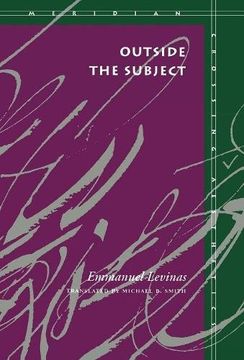Emmanuel Levinas (Kaunas, Lithuania, 1906 - Paris, France, December 25, 1995) was a prominent 20th-century philosopher, known for his contributions to ethical philosophy and his focus on otherness and transcendence. He studied Philosophy at the University of Strasbourg (1923-1928) and delved into phenomenology in Freiburg, where he was a student of Edmund Husserl and Martin Heidegger. He became a French citizen in 1930 and began to spread phenomenology in France with works like The Phenomenological Theory of Intuition.
After World War II, during which he was a prisoner, Levinas developed an innovative ethical philosophy, influenced by thinkers like Franz Rosenzweig and Martin Buber. Among his most influential works are Totality and Infinity (1961) and Otherwise than Being or Beyond Essence (1974), which explore the concept of the relationship with the other as the basis of ethics.
In addition to his philosophical texts, Levinas wrote commentaries on the Talmud, such as Four Talmudic Readings (1968) and From the Sacred to the Holy (1977). After his death, posthumous editions of his works continued to be published, such as God, Death, and Time (2006), Alterity and Transcendence (2014), and New Talmudic Readings (2017).
See more
See less

